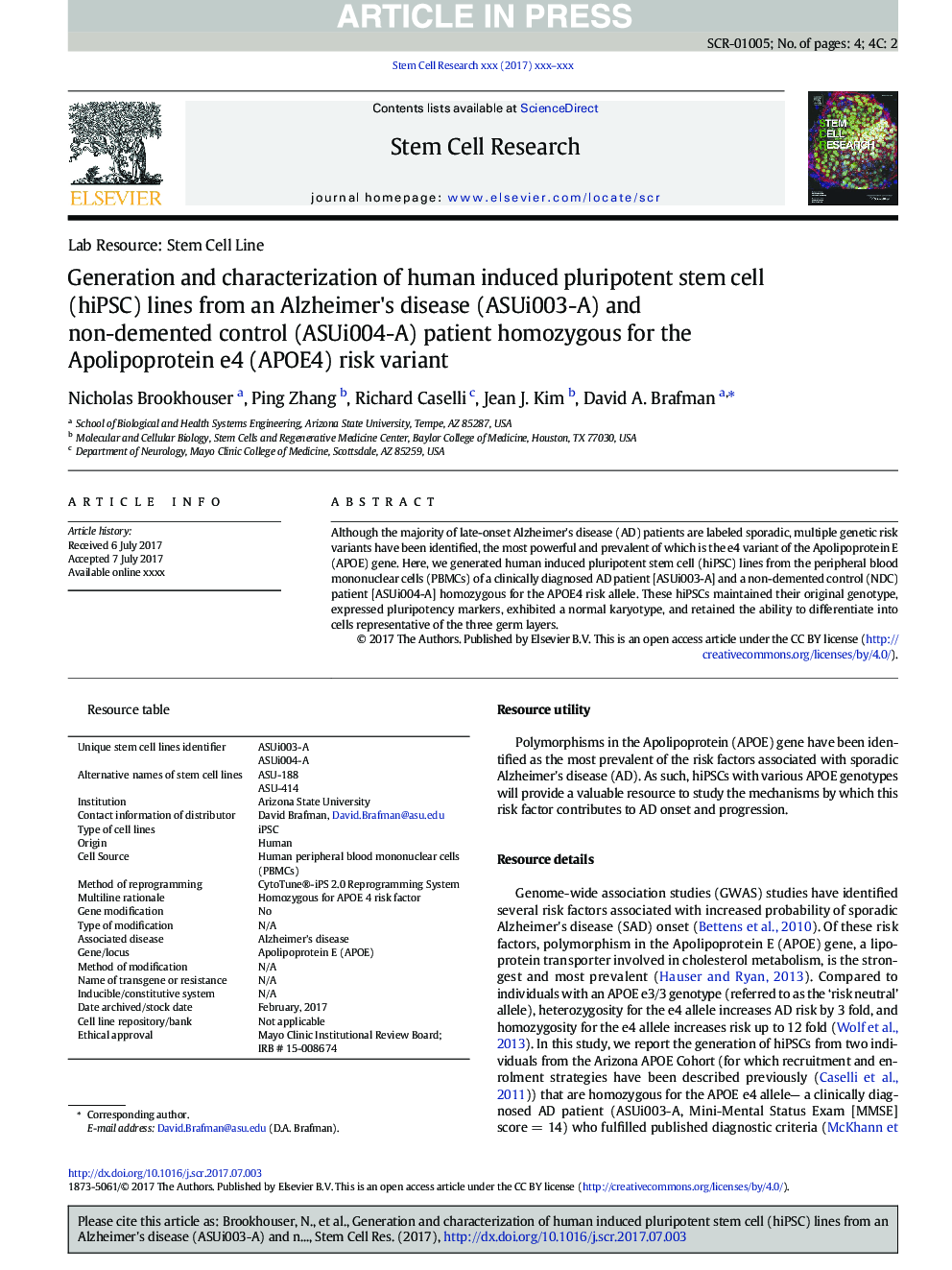| Article ID | Journal | Published Year | Pages | File Type |
|---|---|---|---|---|
| 8425788 | Stem Cell Research | 2017 | 4 Pages |
Abstract
Although the majority of late-onset Alzheimer's disease (AD) patients are labeled sporadic, multiple genetic risk variants have been identified, the most powerful and prevalent of which is the e4 variant of the Apolipoprotein E (APOE) gene. Here, we generated human induced pluripotent stem cell (hiPSC) lines from the peripheral blood mononuclear cells (PBMCs) of a clinically diagnosed AD patient [ASUi003-A] and a non-demented control (NDC) patient [ASUi004-A] homozygous for the APOE4 risk allele. These hiPSCs maintained their original genotype, expressed pluripotency markers, exhibited a normal karyotype, and retained the ability to differentiate into cells representative of the three germ layers.
Related Topics
Life Sciences
Biochemistry, Genetics and Molecular Biology
Biotechnology
Authors
Nicholas Brookhouser, Ping Zhang, Richard Caselli, Jean J. Kim, David A. Brafman,
